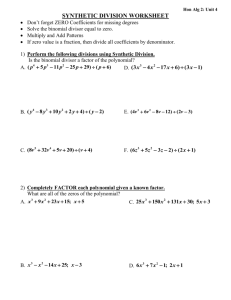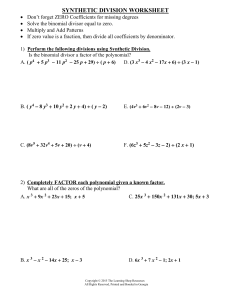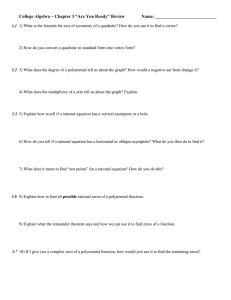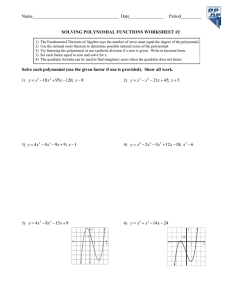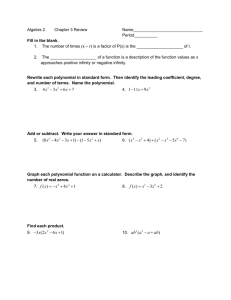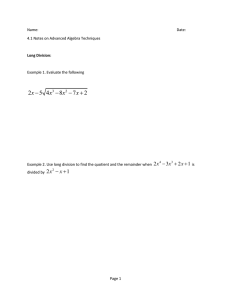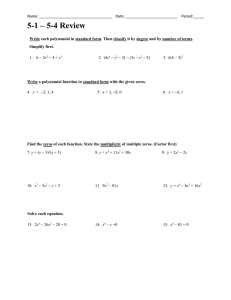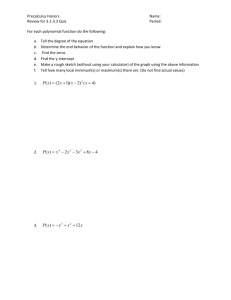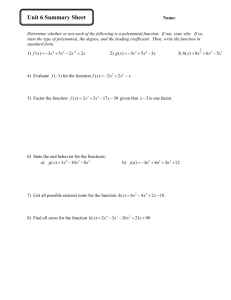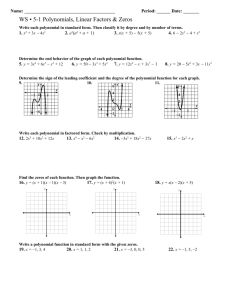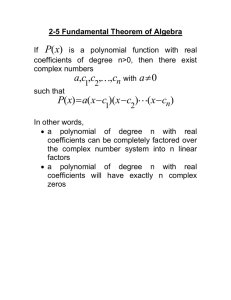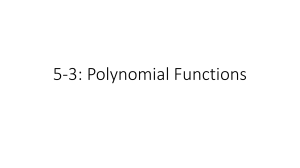SYNTHETIC DIVISION WORKSHEETDon
advertisement
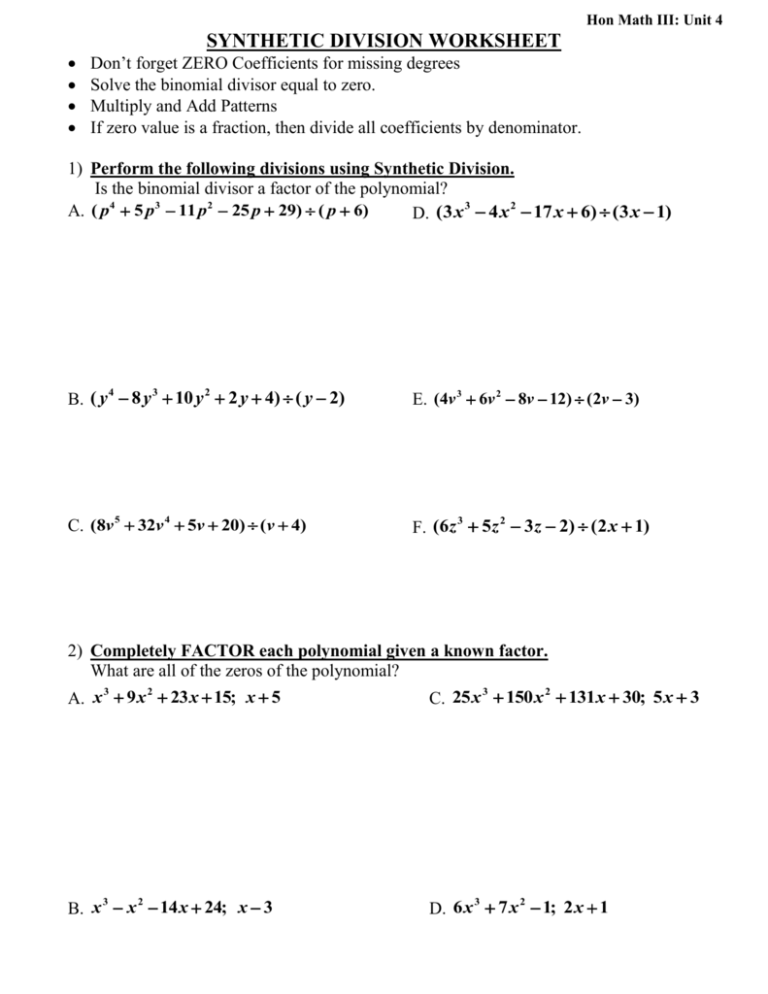
Hon Math III: Unit 4 SYNTHETIC DIVISION WORKSHEET Don’t forget ZERO Coefficients for missing degrees Solve the binomial divisor equal to zero. Multiply and Add Patterns If zero value is a fraction, then divide all coefficients by denominator. 1) Perform the following divisions using Synthetic Division. Is the binomial divisor a factor of the polynomial? 3 2 A. ( p4 5 p 3 11 p 2 25 p 29) ( p 6) D. ( 3 x 4 x 17 x 6) ( 3 x 1) 4 3 2 B. ( y 8 y 10 y 2 y 4) ( y 2) E. (4v 3 6v 2 8v 12) (2v 3) C. (8v 5 32v 4 5v 20) (v 4) 3 2 F. (6z 5z 3z 2) (2 x 1) 2) Completely FACTOR each polynomial given a known factor. What are all of the zeros of the polynomial? 3 2 3 2 A. x 9 x 23 x 15; x 5 C. 25 x 150 x 131 x 30; 5 x 3 3 2 B. x x 14 x 24; x 3 3 2 D. 6 x 7 x 1; 2 x 1 3) For each polynomial, LIST all POSSIBLE RATIONAL ROOTS. Find all factors of the leading coefficient and constant value of polynomial. ANY RATIONAL ROOTS = ± (Constant Factor over Leading Coefficient Factor) A. x 5 7 x 3 3 x 12 B. x 4 2 x 3 8 x 2 16 x 32 C. x 3 27 D. 6 x 3 7 x 2 3 x 1 E. 3 x 2 2 x 2 F. 4 x 2 9 4) Completely FACTOR and find all zeros for each polynomial: List all POSSIBLE RATIONAL ZEROS (Section #3) Use Synthetic Division to check each zero. (Section #2) When you reach a quadratic equation, perform regular factoring or Quadratic Formula. A. x 4 x 5 x 2 B. x x 14 x 16 x 32 C. 5 x 29 x 19 x 5 D. 4 x 9 x 6 x 1 E. 3 x 10 x 24 x 6 x 5 F. 3 x 9 x 4 x 12 3 2 3 4 2 3 2 4 3 3 3 2 2 2
